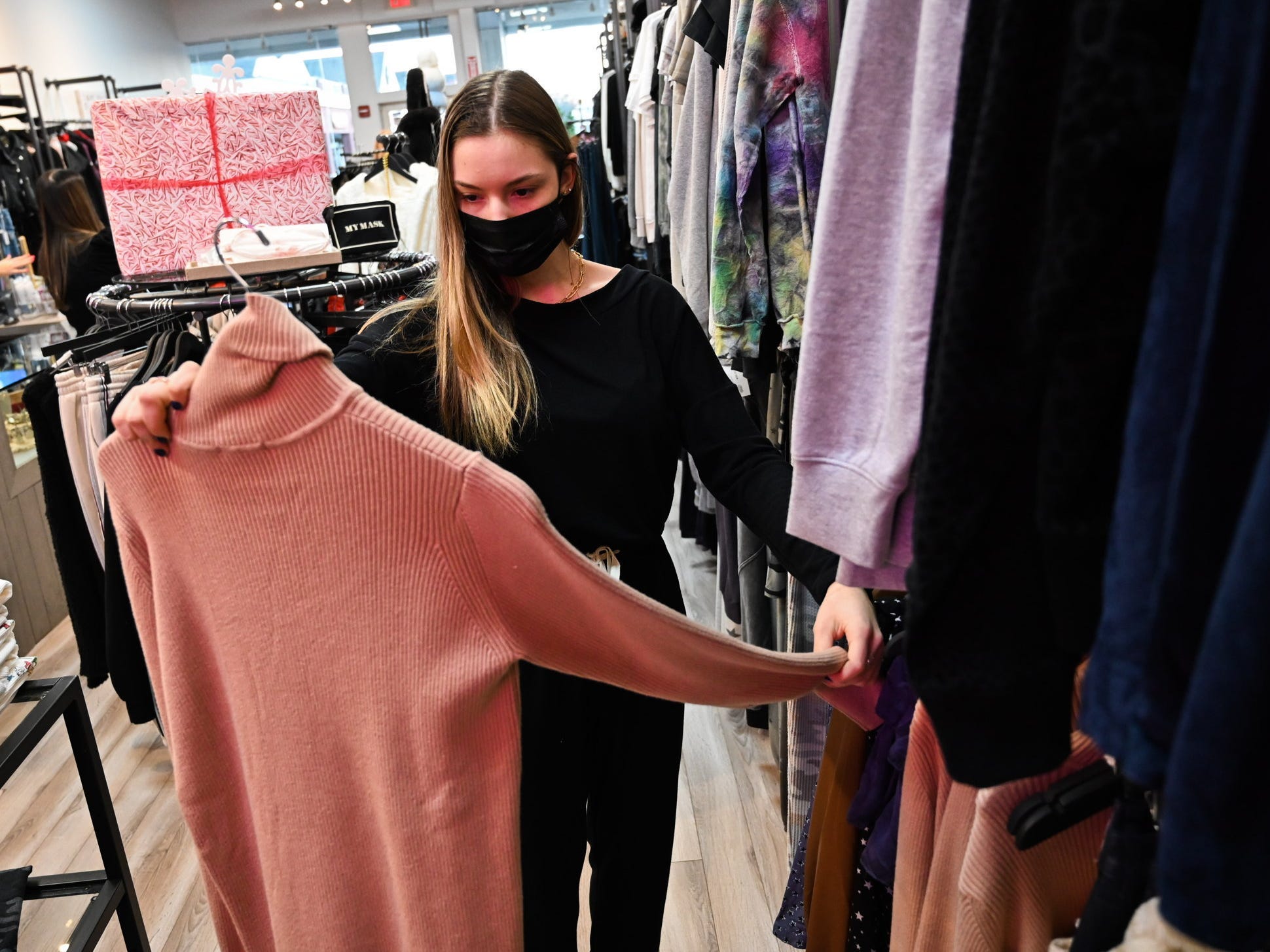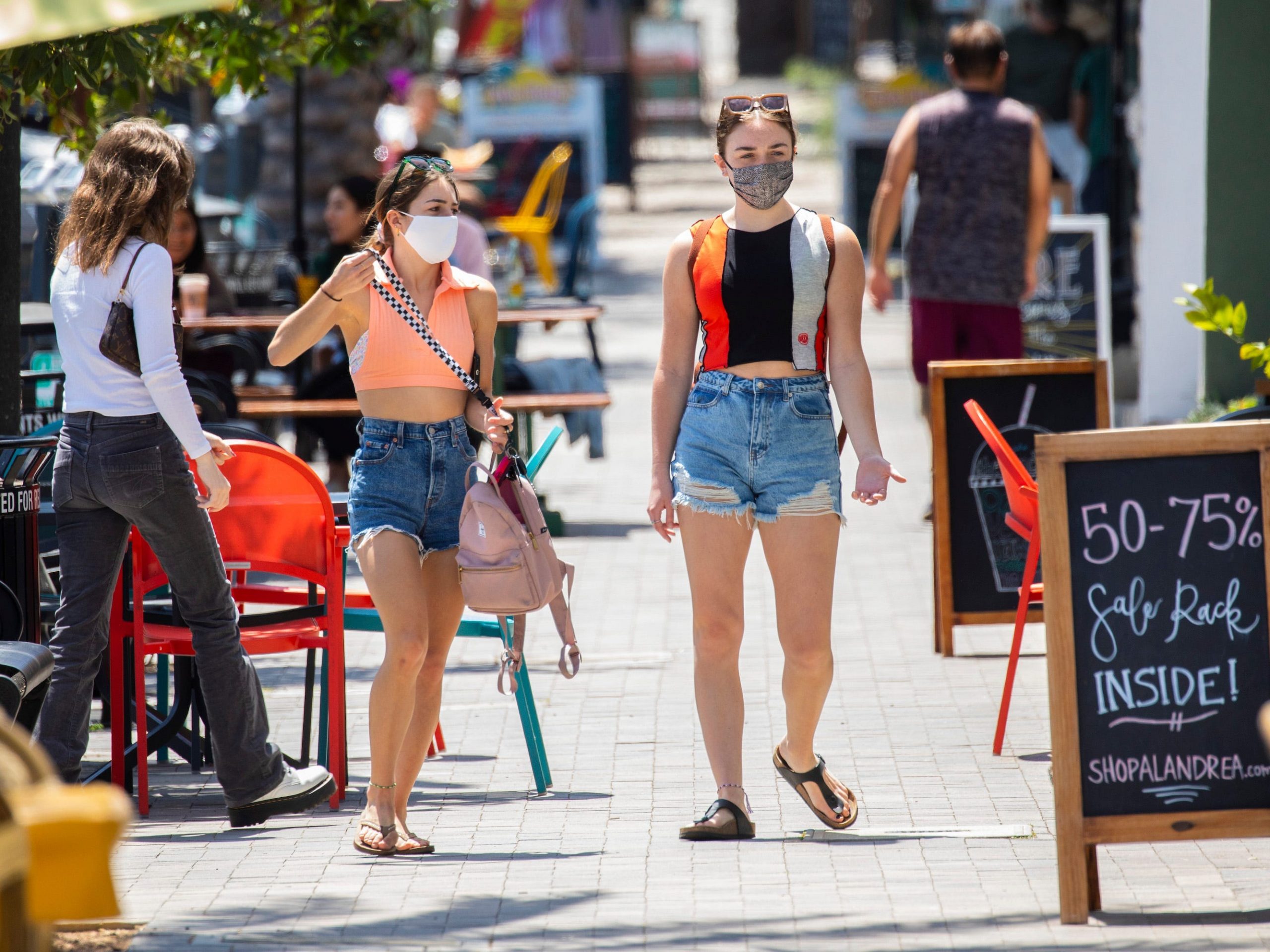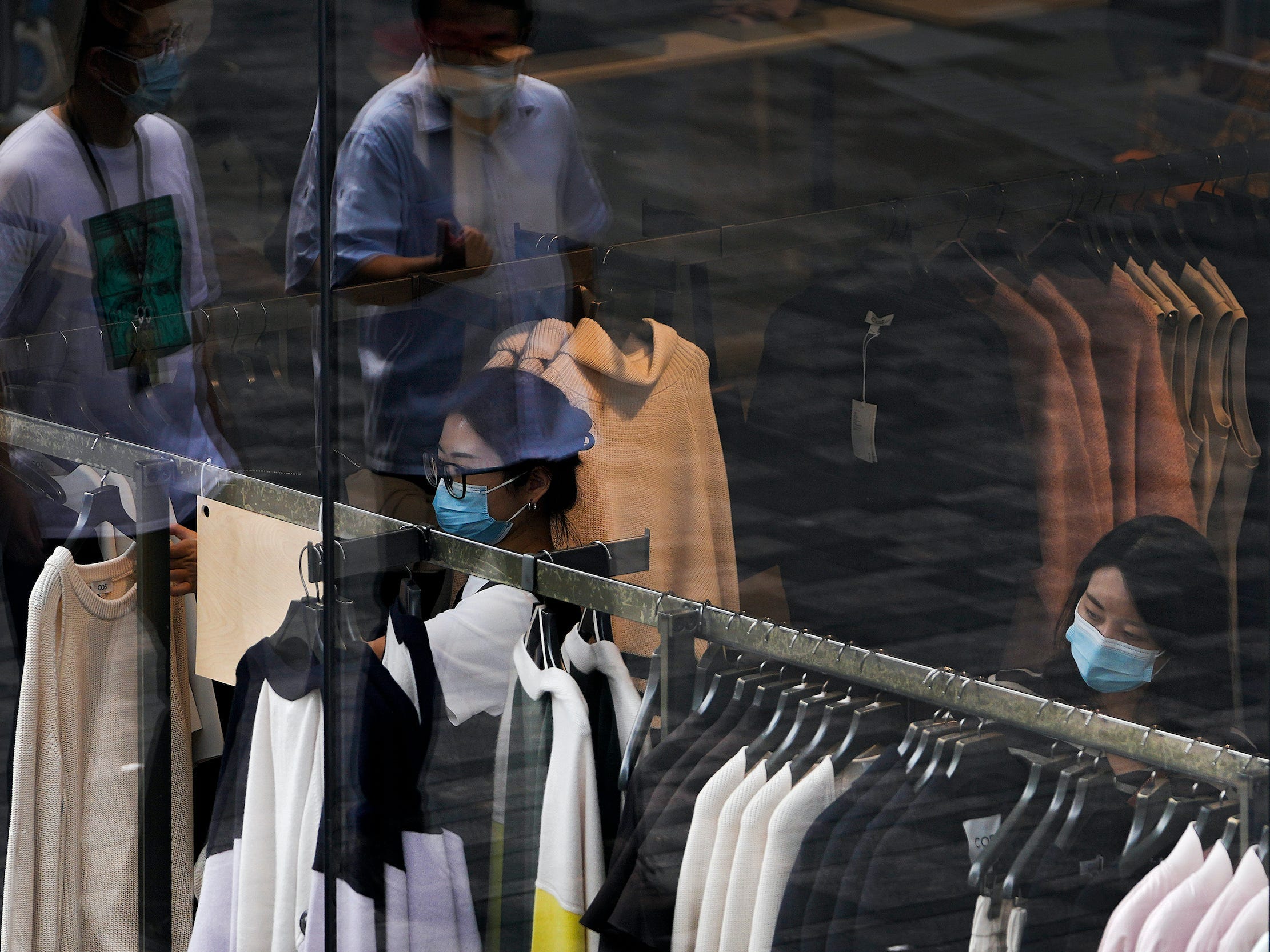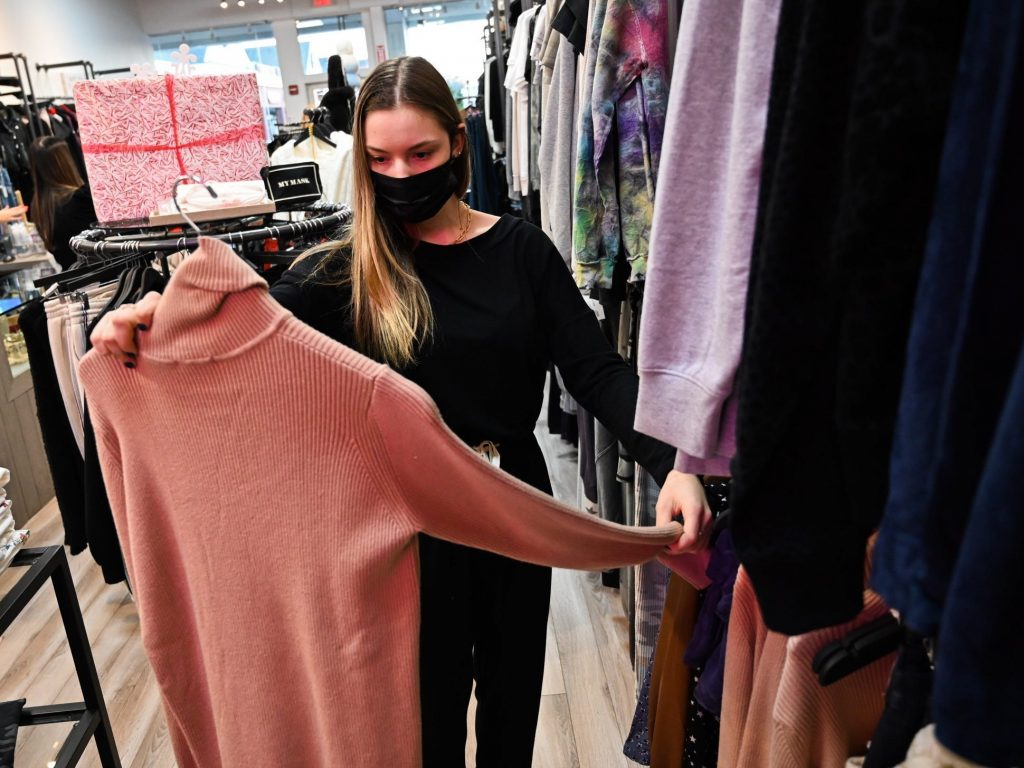
- Many millennial women say they don't know where to shop now, especially for items like work clothes.
- Whereas Gen Z still relies on fast-fashion, millennials are trying to shop more sustainably.
- "Now, I think people are looking for better options instead of more," stylist Liz Teich said.
- See more stories on Insider's business page.
For Amanda James, the shopping crisis began when it was time to return to the office.
After 18 months of working from home, James, who works in alumni relations at the University of Kentucky, wanted a few new tops to refresh her work wardrobe. But after scouring her go-to stores from the before times, she came up empty-handed.
"I was looking on Macy's, I was looking on Loft," James, 35, told Insider. "I felt like I was going through the old favorites and nothing was coming up."
James' issues finding work clothes mirror a growing frustration among millennial women who are unsure where to shop after months of working from home. As life returns to normal in some ways, women who've purchased only loungewear or athleisure for over a year – if they've shopped at all – are trying to refresh their wardrobe before they head back to the office or attend parties or events.
But many retailers still haven't totally recovered from months of pandemic disruptions, and the ongoing supply chain crunch means there are simply fewer clothes to buy right now. Those issues, combined with a societal push to shop more sustainably, has made shopping for cool, trendy, or fun options extra-challenging.
"I really haven't bought any clothes for the past year-and-a-half and would like a few things that I'm comfortable in, that I feel good in, that I think are cute to wear out," James said. "And I have been striking out on that."
'Crop tops everywhere'

Jay L. Clendenin/Getty Images
The phrase "I don't know where to shop anymore" has been circulating among my own friends, family, and coworkers for months.
I decided to pose the issue to my Instagram followers, who are mostly millennial women, and received a slew of responses - in my very unscientific poll, 85% of respondents, all of them women, said they're having trouble figuring out where to shop. And when I asked where they're shopping for affordable clothes right now, one friend immediately responded: "When you find out, let me know."
What James pointed out - and something I and my fellow millennials friends have noticed as well - is that it just doesn't feel like there are many options for women in their late 20s to mid-30s.
"It's crop tops everywhere," James said.
That experience lines up with data from retail intelligence firm Edited, which explored the brands that are popular with Gen Z versus millennials. While sportswear brands like Nike and Adidas reign supreme with both cohorts, and ASOS is popular as well, that's where the similarities ended.
Millennials' favorite brands include Glossier and Veja - who make makeup and skincare products, and higher-end sneakers, respectively, and don't sell clothes - and two affordable, if generic, clothing retailers: Everlane and H&M.
Gen Z, on the other hand, favors Urban Outfitters, PacSun, Boohoo, Missguided, and PrettyLittleThing - fast-fashion brands that make ultra-trendy and affordable clothes, shoes, and accessories. A visit to the current homepage of Missguided, for example, shows models in backless leather shirts, silky slip dresses, and crop tops.
This generational divide exemplifies the challenge of shopping as a millennial: While Gen Z may be able to rely an ever-rotating selection of interesting, if disposable, clothes, millennials seem to buying either athleisure or basics.
Seeking out better options, not more options

Andy Wong/AP
A new focus on sustainability may be one reason why millennials don't know where to turn, as Aoife Byrne, senior womenswear analyst at Edited, wrote in the report.
"For cash-strapped teens, many find it hard to resist the allure and convenience of fast-fashion," Byrne wrote. "Millennials with higher disposable income are more likely to have the resources to reflect their beliefs through their spending."
But shopping with the environment in mind unfortunately comes with a higher price tag, and finding that balance between affordability and sustainability is starting to lead many women to seek out professional guidance.
Liz Teich, a commercial and personal fashion stylist who runs a blog called The New York Stylist, said she's seen a major influx of new clients heading into the fall, especially as many people return to the office or finally have weddings to attend or vacations to take. Plus, the pandemic realigned how we shop - primarily online versus in stores - and for a lot of us, it's a challenging adjustment.
"I had somebody today say, 'I forgot how to shop. I don't know where to go. And I look in the stores and it doesn't seem like there's anything there that I like,'" Teich said. "People don't know how to shop anymore because we're so used to going to the mall or going to stores."
Teich said that other women have simply shifted their values during the pandemic, making a pledge to spend their money, like Byrne highlighted, with brands that prioritize values like the environment or equality.
"I've been finding that a lot of people just don't know where to shop because people are more conscious of how they shop," Teich said. "People are more invested in purchasing from sustainable designers or more conscious brands or independent designers - diverse, women-owned businesses."
For women facing a shopping conundrum right now, Teich recommended a range of companies that focus on higher-quality pieces, many of them with an emphasis on sustainability: M.M.LaFleur, Goldie, Grey State Apparel, Dôen, August the Label, Love the Label, and Merlette.
As for the price point, Teich recommended slightly reframing what we shop for and why.
"In the past, we've been going to more things so we needed more outfits - we were seeing more people, so we needed more options," she said. "Now, I think people are looking for better options instead of more."

